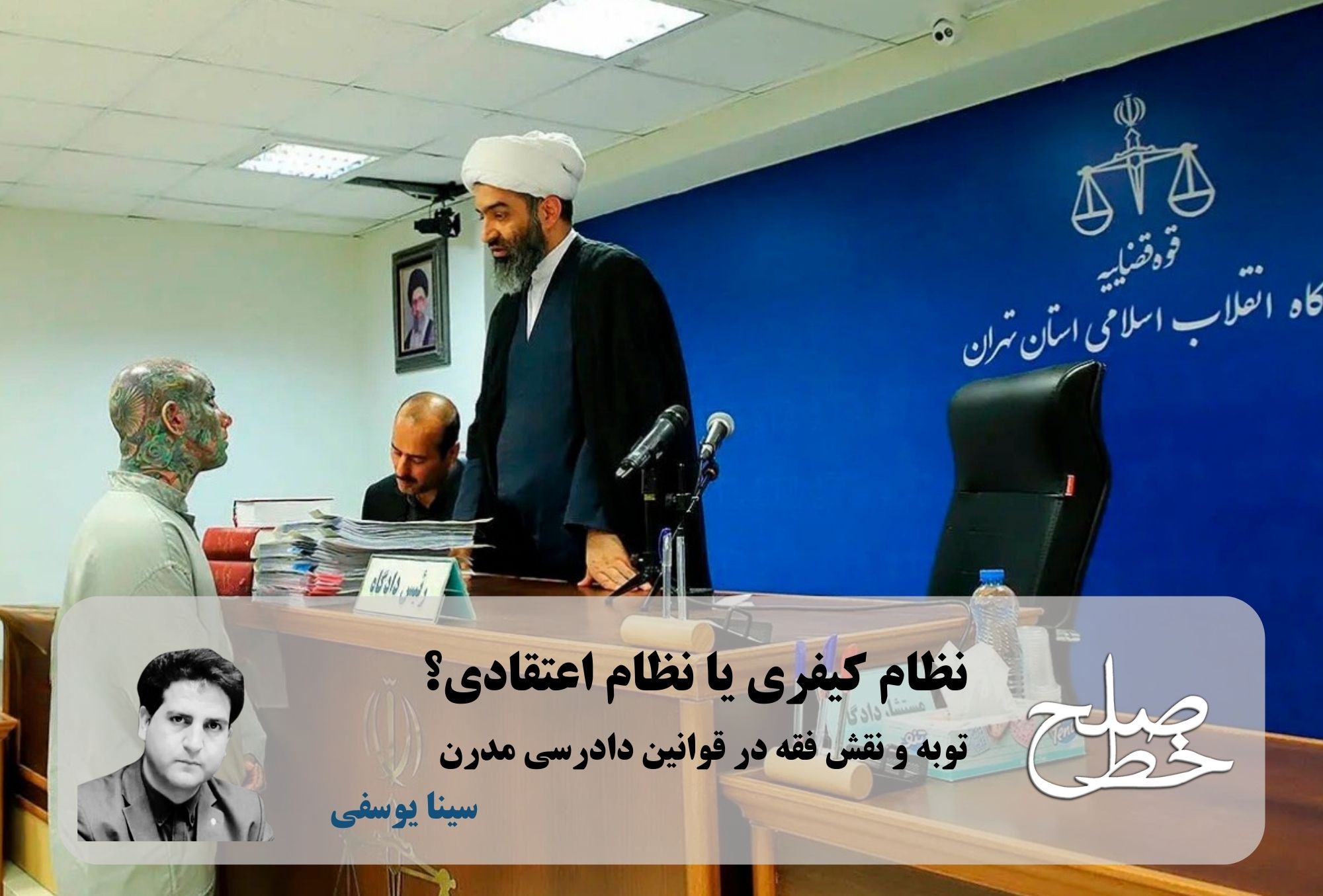
Penal System or System of Belief? / Sina Yousefi
Repentance (tawba) has long been regarded in Islamic jurisprudence as a moral and devotional concept, and over time, it has also gained a significant role in criminal proceedings. Islamic jurisprudence, by linking the realm of religious ethics with the domain of punishment, has created an institution in which inner transformation can lead to the annulment or reduction of punishment. This intertwining of religion and law has placed repentance—despite its subjective and unquantifiable nature—in a position to produce direct legal consequences. Within such a framework, the boundary between ethics and criminal responsibility becomes blurred, allowing internal and subjective criteria to influence the objective standards of legal proceedings.
The penal system’s reliance on a concept like repentance—which is inherently internal and lacks empirical criteria—has led to serious challenges in ensuring judicial justice. A judge is compelled to rule on the “sincerity or insincerity” of repentance based on outward signs or the defendant’s claim, opening the door to subjective interpretation and undermining the principle of predictability in judicial processes. In some recent cases, including the reversal of death sentences for well-known defendants, repentance has appeared in such a way that it allows for political and media exploitation—thereby damaging public trust in the judiciary’s impartiality. As a result, the penal system’s reliance on an institution that lacks clear legal standards has not only compromised criminal justice but also created inequality among defendants and weakened the foundation of the principle of equality before the law.
A deeper critique of repentance makes it necessary to structurally challenge the dominance of traditional jurisprudence over the criminal legislative system. Just as repentance is applied in criminal law based on theological rather than legal foundations, many other jurisprudential criminal categories—such as apostasy (irtidad), armed insurrection (moharebeh), corruption on earth (efsad fi al-arz), rebellion (baghy), insulting the Prophet (sabb al-nabi), and similar acts—are criminalized based on belief, expression, or ideological orientation, which clearly contradicts the principles of freedom of thought and expression. As a result, a structure has emerged in which material and harmful conduct is not the criterion for crime; rather, the individual’s belief and expression are treated as the focal point of criminal responsibility. The continuation of this outlook impedes the alignment of the penal system with principles of fair trial and international human rights standards and demonstrates that the issue of repentance is merely a symptom of a deeper structural problem in Iran’s criminal legislation.
The dominance of jurisprudential foundations in criminal lawmaking has led to the continued presence of punishments such as flogging, execution, amputation, and other corporal penalties in the law, because the legitimacy of these punishments is drawn from jurisprudential sources and lacks criminological analysis, principles of human dignity, or global anti-torture standards. These punishments—abolished in many modern legal systems—not only lack sustainable deterrent effects but have caused widespread moral, psychological, and social harm. Their persistence has shown that the penal system, instead of moving toward a legal model based on rationality, proportionality, and respect for human rights, remains subordinate to a structure that prioritizes preserving traditional jurisprudential penal norms and obstructs fundamental reform.
Achieving criminal justice in its modern sense requires an institutional separation between religious ethics and the legal system. Criminal law must be grounded in principles such as proportionality between crime and punishment, the rational necessity of criminal policy, transparency in legislation, and respect for human dignity. Sole reliance on jurisprudential sources—which are inherently inflexible and based on a specific historical worldview—has restricted the realization of these principles. Purging the penal system of jurisprudential foundations does not mean eliminating the role of religion in society but rather placing the law within a framework rooted in public reason, criminological science, and the universal values of human rights. Such a purification is a necessary precondition for establishing a penal system capable of responding to the needs of today’s diverse and complex society.
The transition to a modern penal system requires that the law be understood not as a direct reflection of jurisprudential rulings and traditional value systems, but as the product of the people’s free will, democratic mechanisms, and the universal principles of human rights—principles whose legitimacy derives not from theology but from collective reason and the historical experience of human societies. Modern legal systems, by emphasizing the primacy of inherent human dignity, the equality of citizens before the law, the absolute prohibition of torture and cruel or degrading treatment, and the strict observance of due process, offer a different model of criminal justice. A model in which the goal of law is to safeguard individual and social liberty and security. These principles can only be realized when the penal structure is freed from reliance on non-legal criteria such as repentance—which is subjective and unmeasurable—and from punishments based on jurisprudence that conflict with global standards of human dignity. Establishing the rule of law in its precise and modern sense requires a legislative foundation based on scientific and criminological analysis of harmful behaviors, the application of human experience in reforming criminal policy, and unconditional respect for fundamental human freedoms. Only through such a fundamental structural transition can the judiciary be directed toward lasting justice, institutional accountability, and the real implementation of citizen equality—and aligned with the standards of the contemporary world and the demands of modern society.
Tags
Evin Prison Execution Judiciary Justice in humanity peace line Repentance Reportage Sina Yousefi ماهنامه خط صلح